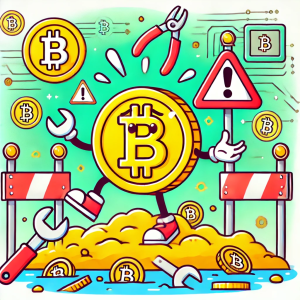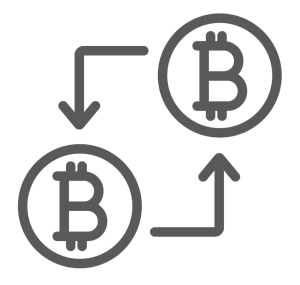
Most systems need at least 20 confirmations for a transaction to be considered complete, and Bitcoin transaction used to take an average of 10 minutes to be validated. However, this is no longer the case. The time it takes for a transaction to be verified is increasing due to increased trade volumes and miners anticipating higher fees. In recent days, the confirmation timeframe has sped up from a few hours to even a few days. This has left customers in a bind since the stuck bitcoin transaction is completed, the Cryptocurrency’s price will have altered. Here’s when a Bitcoin transaction accelerator comes in handy. A BTC accelerator may be useful in broadcasting your transaction several times to numerous parties to quickly confirm your blocked transaction.
However, there is a potential that your transaction may take a little longer owing to factors such as:
Low blockchain transaction fee: If your transaction cost is low, your transaction’s priority on the network is similarly low. It may take longer for it to be attended to and confirmed since miners prioritize transactions with larger fees.
Overburdened network: Some blockchain networks execute transactions in milliseconds. On the other hand, the Bitcoin blockchain is slower and cannot handle a large number of transactions. As a result, the network becomes sluggish when the blockchain has too many transactions.
When confirmation delays occur, it might take anything from one day to more than a week for the transaction to be reported as complete. In such circumstances, you can wait it out or use a bitcoin transaction accelerator, also known as a BTC accelerator, to speed up the procedure.
If you opt to wait, your transaction may be verified, or it may expire, resulting in the return of your bitcoins to your wallet.
bitcoin transaction accelerator come in a variety of shapes and sizes.
1. Accelerators for mining pools
Some BTC mining pools charge a fee for premium services that allow you to prioritize your transactions. However, that mining pool’s ability to confirm your transaction is restricted to the pool’s capacity to confirm a block on the blockchain.
And, since most BTC mining pools only have a tiny proportion of the total hash rate, your transaction would still take a few hours to be validated. For example, a block would take 100 minutes to mine if a mining pool had a 10% hash rate. If the hash rate is %, it will take a pool 200 minutes to mine a block, and so on.
ViaBTC pool, PushTX, and BTC.com are examples of BTC mining pools that provide premium services.
2. Accelerators from other parties
These are third-party service providers that may speed up the completion of your bitcoin transaction by re-broadcasting it in a mining pool if the mining pool drops it.
provenance.im and btcaccelerators.com are two examples of such service providers.
What is the best way to utilize a BTC accelerator?
There are two types of Bitcoin transaction accelerators: free and premium accelerators.
There is no need to join up for the free BTC accelerators. You only need to provide the transaction ID (TXID) of your delayed BTC transfer. Because most free BTC transaction accelerators have an hourly limit on the number of free transactions they can accelerate, you may be compelled to resubmit your transaction’s TXID after one hour if the limit has been met. ViaBTC, for example, is a premium BTC accelerator that can free up to 100 transactions per hour. PROVENANCE, for example, is a BTC accelerator as a service that will act on your behalf to submit your HASH to a variety of third-party services while simultaneously paying miners to prioritize your transaction. You must sign up for the paid BTC accelerators and pay a charge, which is usually debited from the wallet you authorize.


